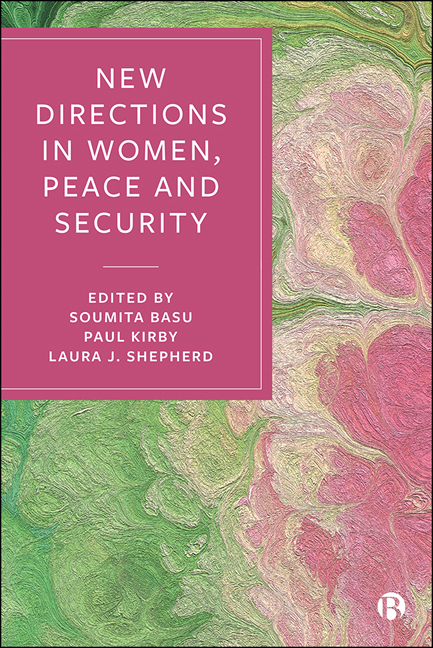5 - Best Practice Diplomacy and Feminist Killjoys in the Strategic State: Exploring the Affective Politics of Women, Peace and Security
Published online by Cambridge University Press: 12 March 2021
Summary
From NAPping to sNAPping
How does it feel to snap at the Ministry for Foreign Affairs, at a meeting taking stock of the progress of the Women, Peace and Security (WPS) National Action Planning (NAP)? This auto-ethnographic reflection (Martini and Jauhola 2014) on the affective sites of WPS NAPping is a result of a dialogue and writing process between two feminist international relations scholars who share a career trajectory of having been aid intervention project managers, gender experts and advocates for UNSCR 1325 during the two decades of its implementation in various international and foreign affairs spheres. We focus on the analysis of affects created around our participation in the preparation and launch of the third WPS National Action Plan (2018– 21) in Finland, particularly in view of the claims by Finnish diplomats that this was ‘the world's best NAP’. We weigh these claims against the intimate resonance of the NAP process with the wider turn to neoliberalism, conservatism and nationalism (Elomäki and Kantola, 2018) where the NAP emerges as a tool of global neoliberal governmentality of gendered foreign affairs, defence policies and expertise on such themes.
We suggest that affective moments of feminist killjoyism (Ahmed, 2010), which we in this context call ‘sNAPping’, can allow the emergence of a critical and radical democratic feminist space that draws from difference, dissent and antagonisms (Laclau and Mouffe, 1985) rather than consensus-driven gender equality policies of the neoliberal strategic state (Brown, 2015). They offer openings for new directions in feminist activist-scholarship on WPS as it turns the focus from the shame of being a feminist killjoy towards feminist creativity and the creation of alternative feminist spaces and knowledges on WPS.
NAPping makes the strategic state become real
Finland started drafting its third NAP towards the end of 2016 and the Ministry for Foreign Affairs (MFA) contracted an external facilitator – a US-based gender equality organization with a track record in facilitating WPS NAP development processes around the world – to take forward the process. The process was designed as a series of three interactive workshops in late 2016 and early 2017 with participation from several ministries and agencies, civil society organizations and a handful of university researchers, including ourselves. The first workshops began with presentations by the consultants.
- Type
- Chapter
- Information
- New Directions in Women, Peace and Security , pp. 83 - 90Publisher: Bristol University PressPrint publication year: 2020



